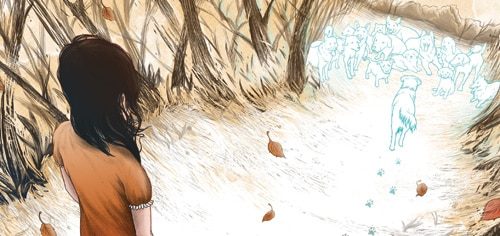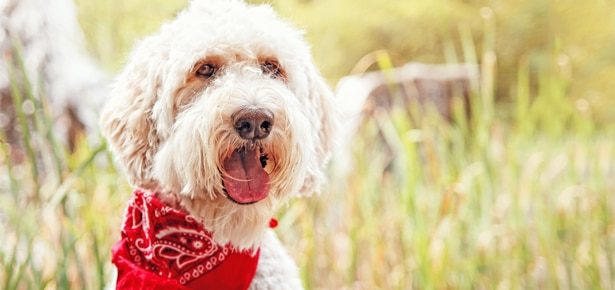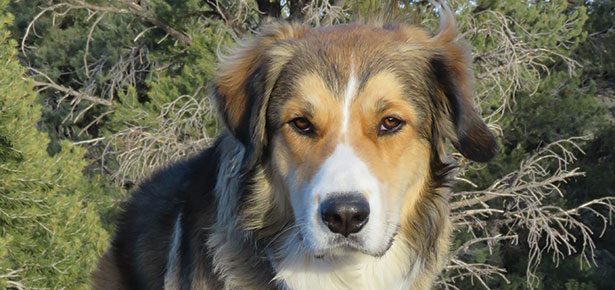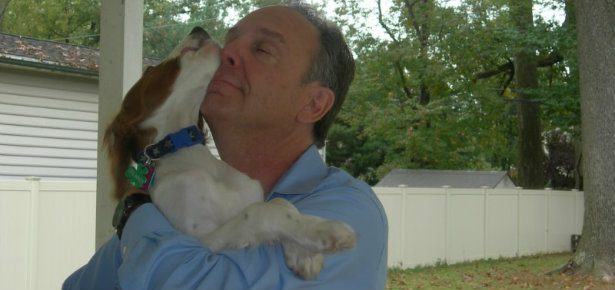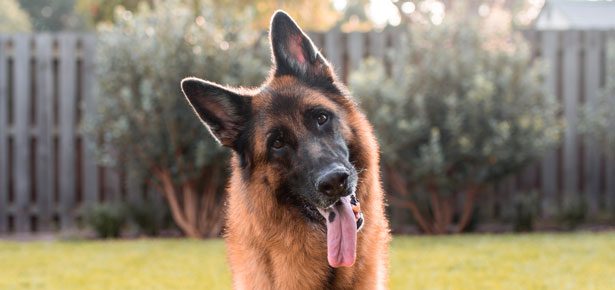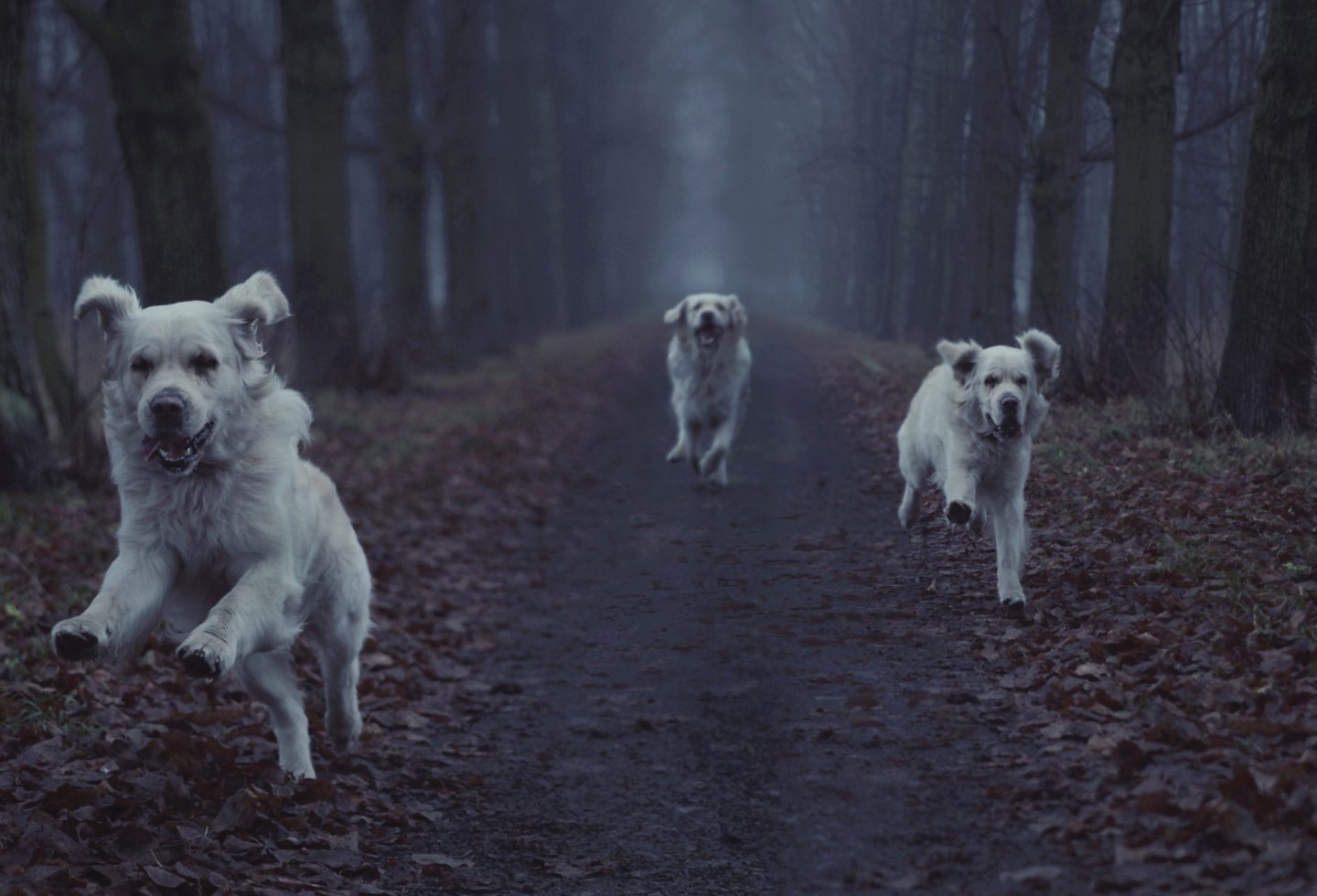
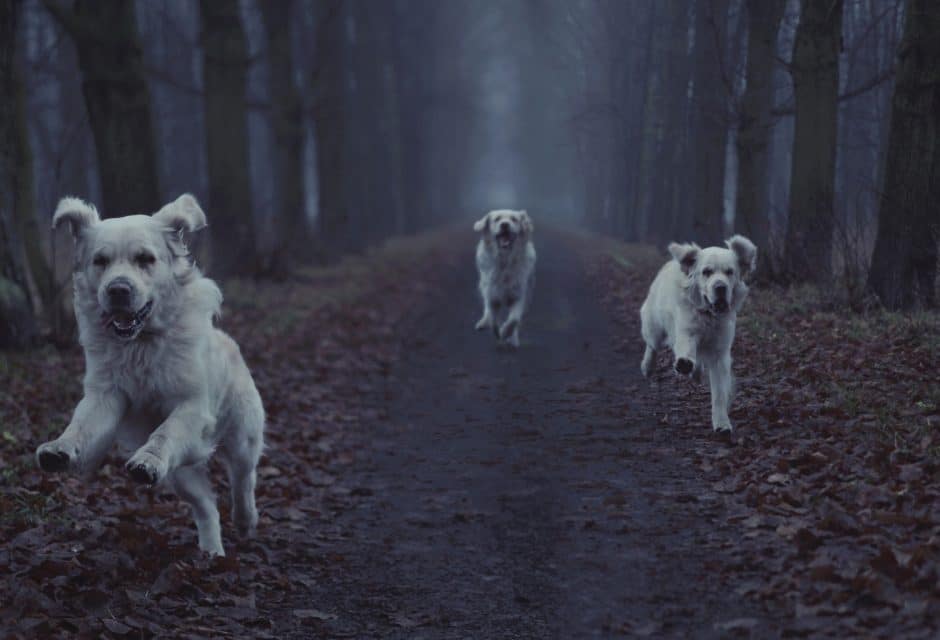
Beware the Howling Dog
An examination of the cross-cultural belief that dogs possess supernatural or psychic abilities
It is the opening scene of a Hollywood movie. As the night shot gradually comes into focus, we hear the plaintive howling of a dog. A moment later, we see him sitting on the front step of the house, his head pointed toward the dark sky. He gives a few widely separated barks and then returns to his mournful howl. We give a little shiver since we now know something bad is going to happen. Sure enough, the camera zooms in on a window of the house, where we see a small cluster of people: a mother and her grown daughter and a man in a dark suit bending over a bed in which an elderly man is lying. The man in the suit straightens himself and turns to the two women, sadly saying, “I’m afraid that he is dead.” This is not a complete surprise to us since the moment that dog started to howl we had the feeling that someone was about to die.
The belief that dogs have supernatural or psychic abilities has a long history and is found in many cultures. One of the almost universal beliefs is the conviction that the howling of a dog is a death omen.
Some people trace the association between dogs howling and death back to ancient Egypt. In that time and place, the god that took care of the dead was Anubis, and he was represented as having the head of a dog. Thus, a howling dog was believed to be calling a soul to Anubis.
In Ireland, it was thought that dogs howl because they hear the spectral pack of hounds that lead their riders on the wild hunt through the sky collecting the souls of the dying.
An ancient Norse legend has a more amusing explanation. It speaks of the Freyja, the goddess of love, fertility, and magic, but also death. When she is acting as the goddess of death, she rides the crest of a storm on her chariot pulled by giant cats. Because cats are dogs’ natural enemies, it is said that dogs would start to howl when they sensed the approach of Freya and her mystical felines.
The superstition has roots in the southern states, too. When I was training with the U.S. Army at Fort Knox in Kentucky, I would take whatever free weekend time I had to wander through the countryside and talk to people about their dogs. I’m sure that part of my motivation was that I was missing my own dog and another part was that it felt good to be away from the formality of life on an army base. Fortunately, rural Kentucky is filled with lots of people who own and like dogs and are willing to just sit and talk about them to pass the time. One Saturday afternoon I found myself in the Southeast corner of the state talking to an old woman whom I knew only as Aunt Lila. Her son bred hounds—beautiful Redbone coonhounds. We were sipping some lemonade that she had made and waiting for her son to return from the field with several of his dogs when the minister from the Methodist church that Aunt Lila belonged to came up the steps of her porch. He sat down with us and accepted a glass of lemonade.
The minister had dropped by to check up on Aunt Lila whose age had made her frail. Lila had also had a few specific health problems which gave the people she knew some concerns. Since her son spent part of each week trucking produce to the city, the minister had decided to pay a visit just to make sure that his parishioner was well and assure himself that she was being cared for.
“Now don’t you worry about me dying,” she told the Reverend when he asked about her health. “You and me will know when the time is coming because the dogs will tell you.” “Just how will the dogs tell you?” I asked.
“It ain’t complicated. If a dog gives two howls close together it means that Mr. Death is coming for a man. Three howls means a woman is about to die. You know which man or woman is about to pass away because dogs look in the direction of that person. My daddy said it was good luck to have a dog howl with his back to you. So far I can tell you, there ain’t no dog that looked me in the face and howled.”
I looked from the old woman whose education had stopped just short of finishing grade school, to her pastor with his university training, and asked, “Do you believe that?”
The minister smiled and said, “The bible certainly doesn’t say yes or no about that. But I feel comfortable with it. Don’t you get chills when you hear a dog howl? It may well be the fact that God has chosen the voice of the dog to send a message that something bad is about to happen, like a person dying.”
As a scientist, however, I have a predilection to ignore most supernatural explanations. Fortunately, there is enough data to suggest a simple alternate possibility to explain our entrenched cross-cultural belief that a dog’s howl is a sign of a coming death, and it has nothing to do with Anubis or Freyja. It begins with a well-known thinking bias that human beings have. It is a kind of selective memory based on what psychologists call the “confirmation bias.” This refers to the fact that people tend to notice or even look for events that confirm their beliefs, and to ignore or perhaps undervalue the relevance of observations that contradict their beliefs. The classic example is that if a person believes that a full moon triggers an increase in crime, accident rates or social disputes, then he or she will take special notice when such events occur during a full moon and will be less likely to notice or remember these same events should they happen at other times. Obviously this would, over time, produce an unjustifiable belief in the relationship between a full moon and the occurrence of crimes, accidents or arguments.
Now let’s turn to the howling dog. First, it is important to understand why dogs howl. In the wild, wolves, coyotes, and other undomesticated canine species howl to gather the pack. A typical howl means, “I am here. I am lonely. Where are you?”
Once the pack is assembled, the nature of the howling changes and becomes more festive. Domesticated dogs howl a lot less than their wild cousins, however, the principal trigger for howling is still the same, namely loneliness and isolation.
Now suppose that someone in a house is ill. Because of the need to care for that person, a dog that normally stays inside the home might be viewed as being a distraction, a bother or a source of noise that might disturb the patient. For this reason, the dog might be put outside or shut away for a while. Thus, a dog who is normally surrounded by his human family and might even usually sleep in the same room with the sick person now finds himself alone. Remember that dogs howl out of a sense of being alone since they are trying to call their pack mates for social support. So now the family dog begins to emit those sad sounding wails. The people in the house may be surprised by this behaviour, recounting, “Grandfather’s dog never howled before, but the night that grandfather died the dog howled so mournfully because he knew the end was near.” The truth of the matter might be that the dog never howled before because he was never locked up and isolated from his family before.
So now we have the setup for developing a superstition. The elements involved are:
• It is common to remove a dog from the house when someone is seriously ill.
• Seriously ill person may die.
• A lonely isolated dog is more likely to howl.
• We already have a tradition of believing that a dog’s howl might be a warning that something bad is about to happen.
Combine such chance associations with our tendency to only remember when our predictions are correct, and we have all of the elements needed to add yet another example to our belief in the psychic ability of dogs to sense the supernatural and predict the future—such as howling when death is near. In summary? Worry not if your dog howls, whether he’s looking at you or out on the porch at night looking at the sky. His howl does not presage your death (thank goodness!) but rather indicates that he is lonely. So simply take him in the house, give him some pats and company, and the howling should stop (the chill and trepidation you’ve been feeling should go away as well).
Join the newsletter and never miss out on dog content again!
"*" indicates required fields
By clicking the arrow, you agree to our web Terms of Use and Privacy & Cookie Policy. Easy unsubscribe links are provided in every email.
